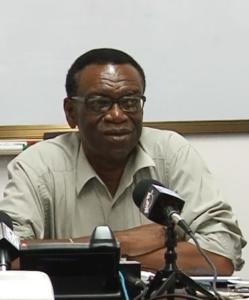Despite acknowledging that there has still been no noticeable improvement in its customer relations, the Guyana Power and Light (GPL) Incorporated has said that it will work harder this year to improve its efficiency, though the company is still faced with several major issues.
GPL Deputy Chief Executive Officer (Technical), Elwyn Marshall, said notwithstanding these challenges; GPL has managed to perform commendable in 2017 and could only improve from thereon.




